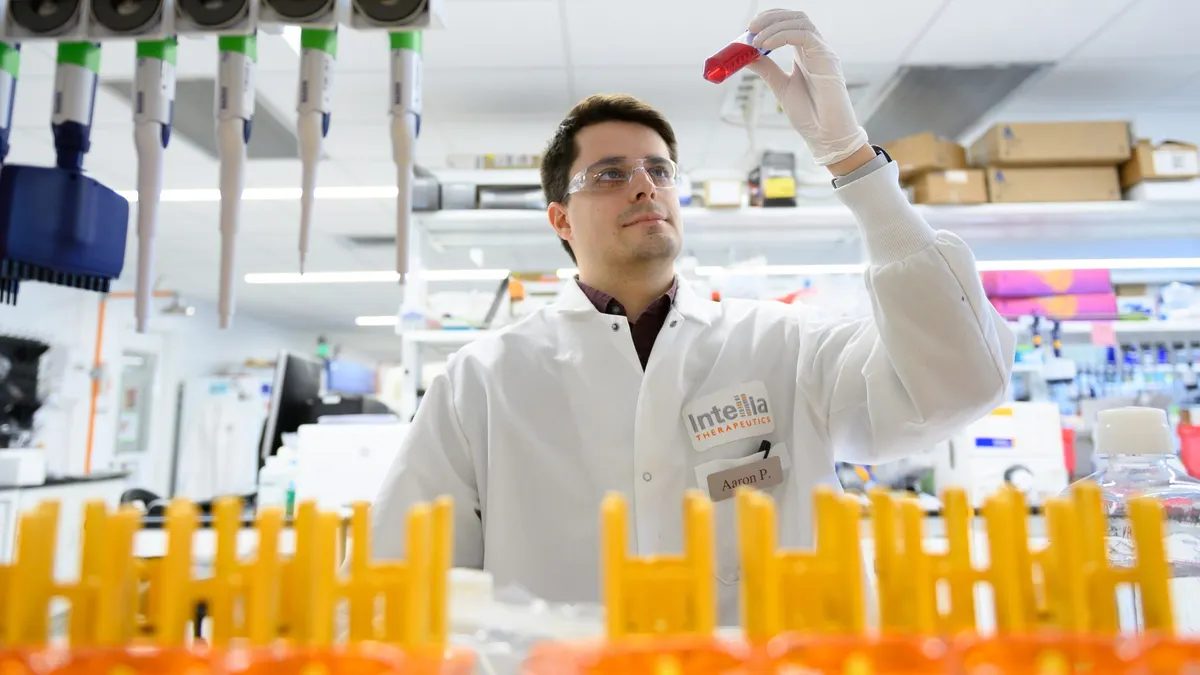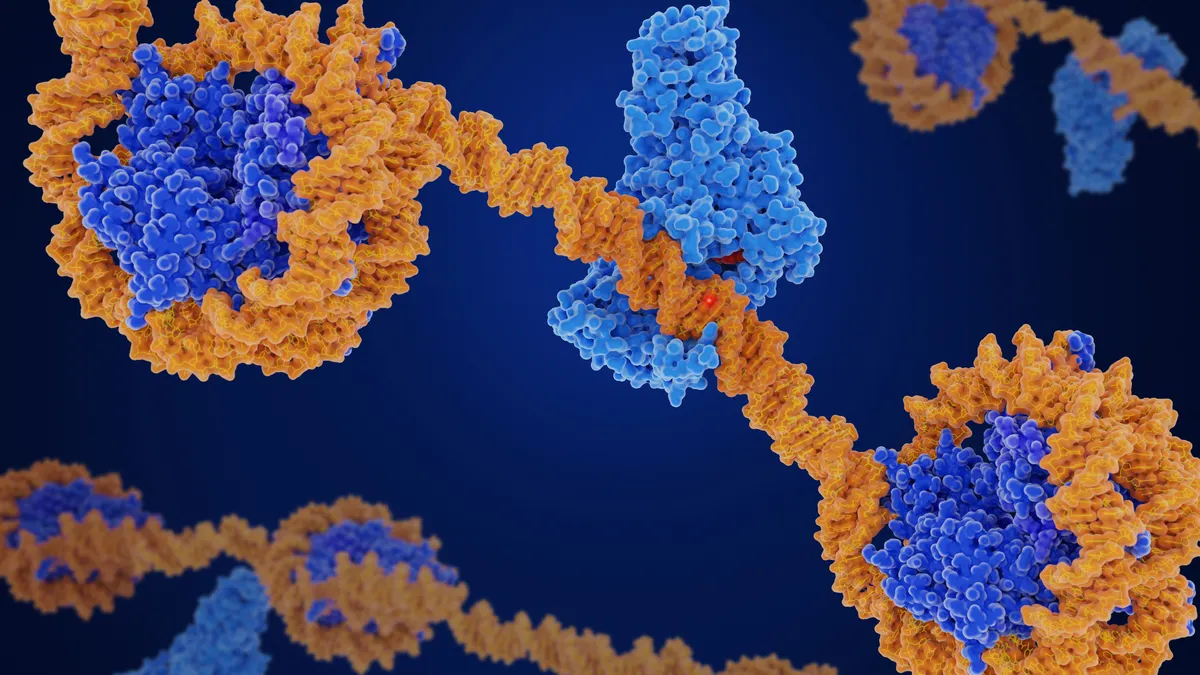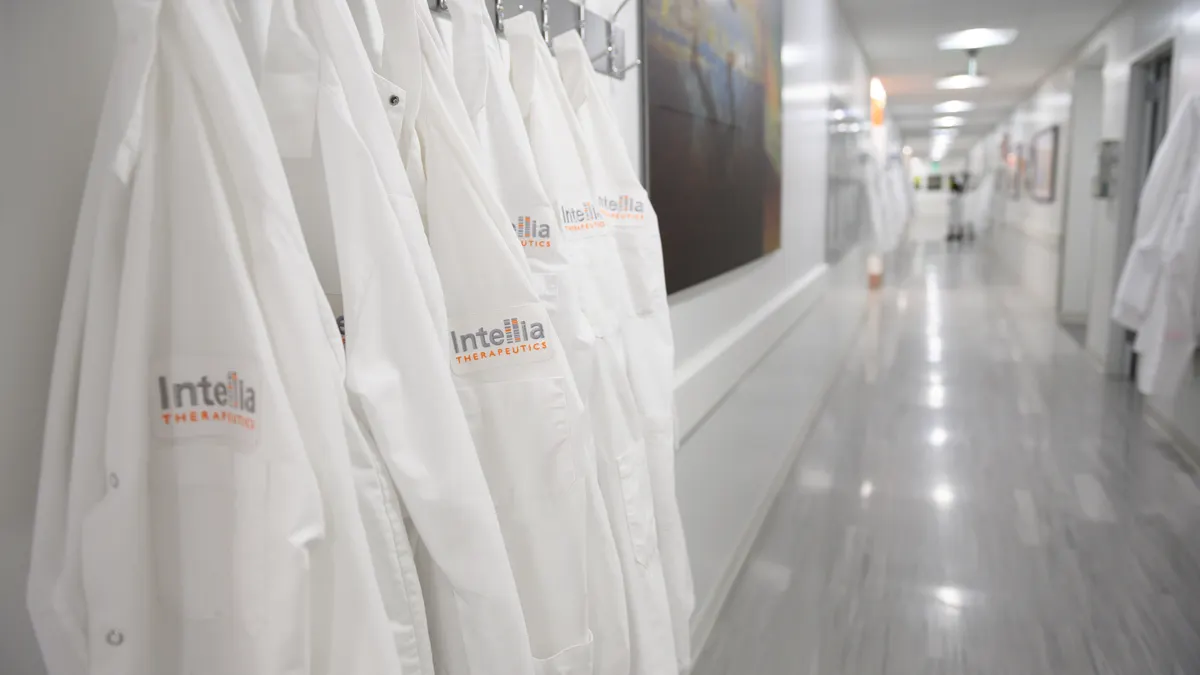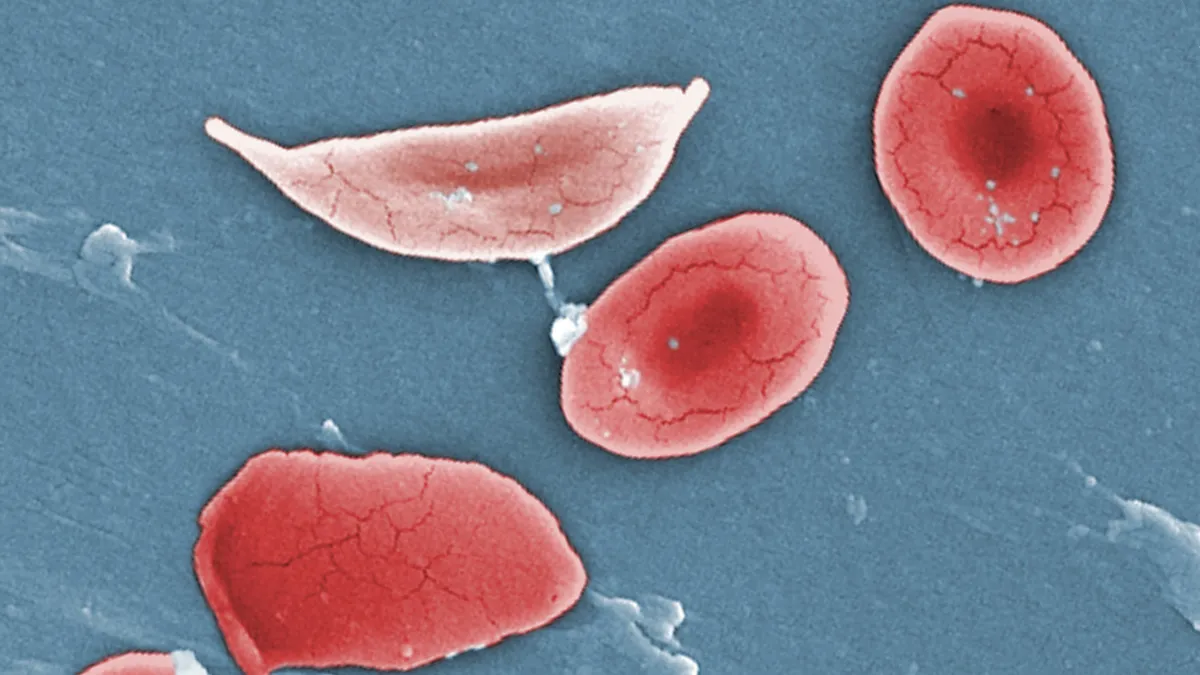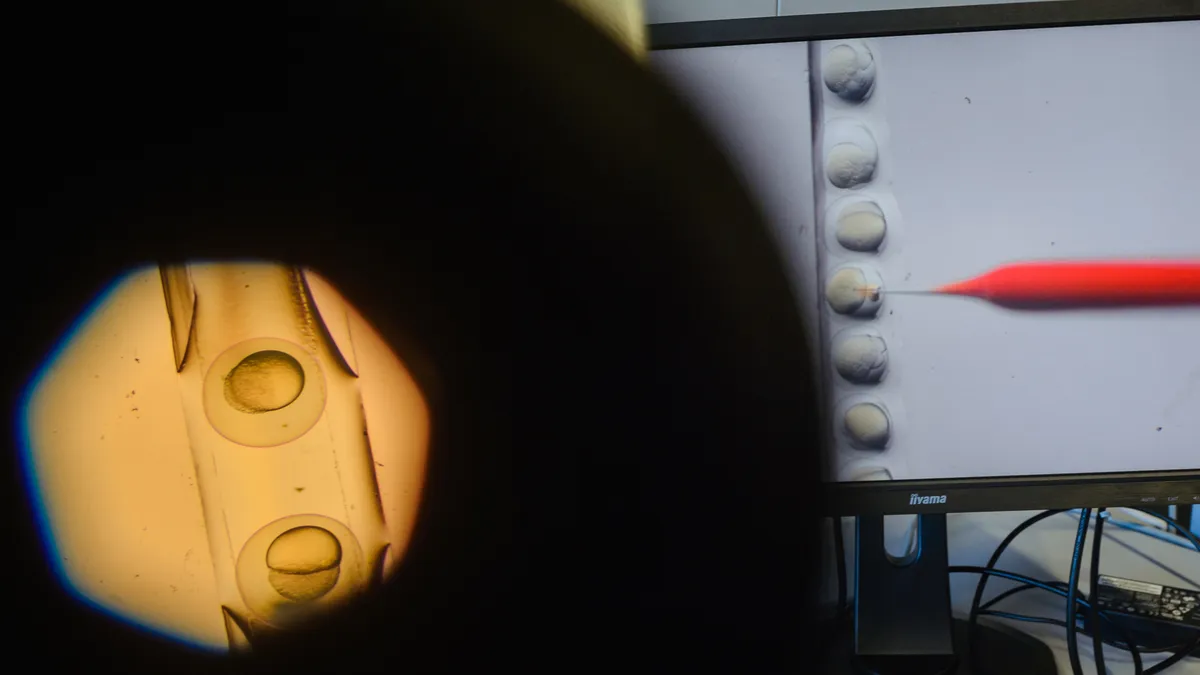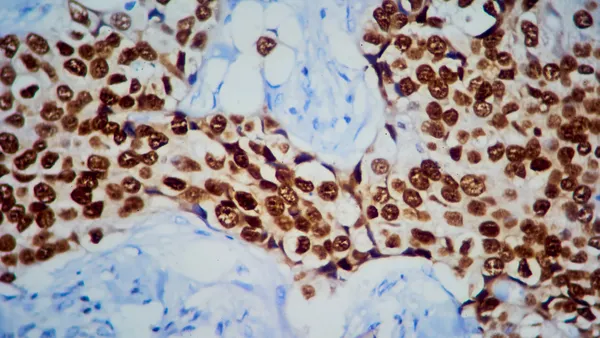Dive Brief:
- Korro Bio shares dived 80% Thursday after disappointing study results led the company to abandon its lead RNA editing treatment, lay off staff and pursue a new research strategy.
- The company was testing the therapy, KRRO-110, in patients with a genetic disorder called alpha-1 antitrypsin deficiency, or AATD. The condition occurs when gene variants stop the body from producing enough functioning AAT protein, which is critical for protecting the lungs, liver, skin and blood vessels.
- KRRO-110 helped patients produce functional protein, but not at the levels expected based on preclinical testing, Korro said late Wednesday. The company zeroed in on the delivery system as a potential issue for the drug and now plans to pick a new candidate in the first half of next year that will use a different method of getting RNA editing treatments into the body.
Dive Insight:
The results are a major blow for a company that had been one of the leaders in the RNA editing field. Korro went public in 2023 via a reverse merger with Frequency Therapeutics that left it with about $170 million to advance its pipeline.
On Wednesday, Korro said it ended the third quarter with $102.5 million and plans to extend the cash runway into the second half of 2027 by laying off about 34% of its staff. Chief Medical Officer Kemi Olugemo also resigned, effective immediately.
The retrenchment leaves Korro well behind rivals, including Wave Life Sciences and privately held Airna, which are both advancing RNA editing treatments for AATD. And Korro also announced that a research collaboration with Novo Nordisk focused on cardiometabolic diseases will be paused for 12 months “to reassess the rationale for the current target under the first research program.”
In shifting its method of delivering RNA editing drugs, Korro is also adopting an approach some of its rivals are using that involves a type of sugar molecule. That choice “goes against the company’s own thesis” and raises “concerns about differentiation,” wrote William Blair analyst Myles Minter.
Korro’s study failure is the latest bump in the road for what many researchers consider to be a promising field. Unlike DNA editing, RNA editing offers the possibility of making temporary instead of permanent changes to a person’s genetic code – potentially offering safer and more flexible treatments.
In choosing AATD, Korro and rivals are hoping to provide therapies for patients who have few options. Major drugmakers, including Vertex Pharmaceuticals, have failed in a quest to find an effective AATD treatment. The RNA editing drugs for the condition are advancing alongside other approaches that include RNA interference and base editing medicines.
Wave has shown that RNA editing can work in AATD, though updated findings from its research released in September weren’t as strong as investors had hoped. Wave shares were down about 1% Thursday, mirroring the larger market.










